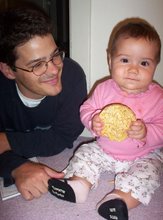While the medical system has come under fire recently, thousands of free clinics around the country have been working to fill the holes. Seen as an acute stop-gap for something that is essentially a chronic problem, the cost of these clinics to their providers is generally a tiny fraction of the true value of care received by patients.
No potential medical system can successfully deliver universal coverage while at the same time controlling costs if it does not stimulate the delivery of low cost and free basic services to those most in need.
The Free Clinic movement is living embodiment of many conservative principles: the principles of subsidiarity and voluntarism, the spirit of enterprise and of community self-reliance. As health care becomes more and more of a national concern, if people are truly concerned about the less fortunate, there should be a population explosion in the number of free clinics around the country.
All the good intentions in the world would not make a free clinic possible in our litigious society. But that problem has been solved in Virginia, whose example could easily be followed.
With
the help of the Virginia Association of Free Clinics, the state recently established the "VaRISK2" liability risk management program. Operating under the Division of Risk Management of the Department of the Treasury, of the Commonwealth of Virginia, the program indemnifies Directors, Officers, employees, and volunteers in a Free Clinic.
|


